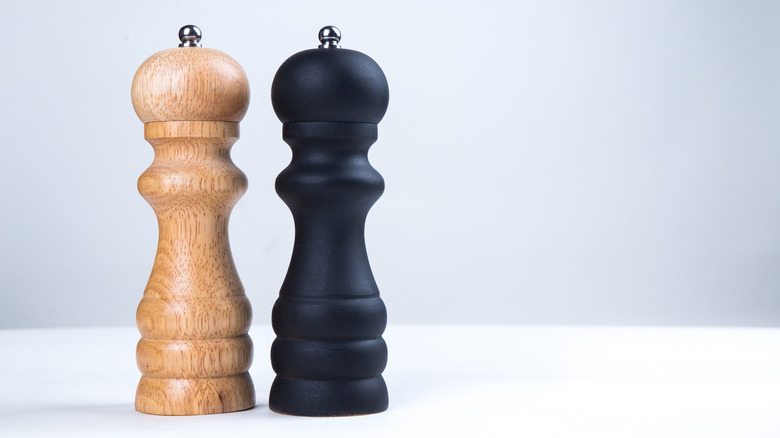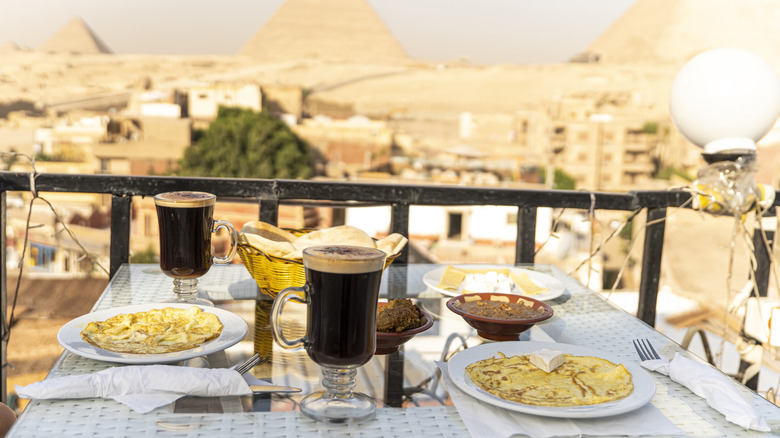Why You Should Skip The Salt And Pepper When Dining In Egypt
Being a foodie, traveling across cultures, and indulging in different cuisines is just one of the many joys of life. But no matter where you are, it's easy to get so lost in the excitement of the food itself that you forget about one very important thing — etiquette. Sometimes we may even think we're following the protocol, but come to find out we've been completely misguided.
For instance, something you might think of as harmless, such as peppering your own salad, could unknowingly be taken as an insult if you're dining in Egypt. While it may be a common habit in the U.S., in Egyptian culture, reaching for the salt or pepper when you're sitting down for a meal is actually incredibly offensive. After all, that dish was prepared just for you, with the intention of tasting exactly as it does.
Therefore, asking for more seasoning insinuates that it wasn't prepared to standard. So, if you find yourself at a restaurant in Cairo and you catch yourself looking around for salt to add to your dukkah-crusted fish, it's best that you hold your tongue. That rule is even more imperative to follow if you're dining in someone else's home.
More Egyptian dining etiquette tips
There are a few other things you'll want to make note of before you dine in Egypt or an Egyptian home. Considering that 90 percent of Egyptian people are Arab, it's generally best to assume they don't eat pork. This means that you shouldn't pass anything that might be made from pig or gelatin to the person sitting next to you. The same thing goes for alcohol.
Egypt is an Islamic country, but even the remaining 10 percent of the population is Christian, the majority of whom are Orthodox. That being said, casual alcohol consumption isn't as normalized as it is in other parts of the world — so before you offer to pour someone's glass, be sure to ask them first. Now that we've covered the biggest no-nos in Egyptian food etiquette, we can shift our attention to some of the things that you can do to compliment the chef, rather than insult them.
This begins with how you compliment them, which should be by using direct statements, rather than questions. However, there are also nonverbal cues you can use. For instance, in Egypt taking a second helping is a big one, so don't hesitate to fill your plate with more food. It's also a compliment if you leave a bit of the meal on your plate before you leave, which shows the host that they've provided you with more than enough food and that you'll be leaving happy and full.

